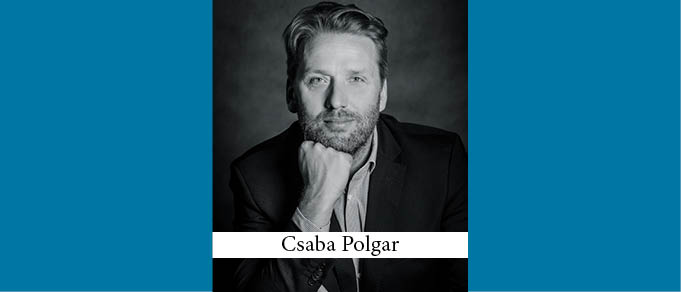“What we face and what is keeping us and a lot of other firms in the market busy is solar development,” says Csaba Polgar, the Managing Partner of Pontes: the CEE Lawyers, who describes a "solar boom in Hungary.”
Polgar notes that, across Europe — first in the Czech Republic, then Bulgaria, Romania, and even Germany and Spain — governments started pulling back on their excessive government subsidies for solar power in the past few years. Hungary, in contrast, had taken a conservative approach all along, keeping the same level of subsidies for over a decade, with the mandatory off-take price now at approximately EUR 0.10 per kilowatt hour. The development costs of solar projects have significantly dropped in the past few years, making these investments very attractive at the moment. Thus, Polgar reports, “if you have a mandatory off-take license, and you build the power plant, MAVIR (Hungary's state-owned transmission system operator) will take the energy at a fixed price — which is currently around double the market price.” As a result, he says, “in the past two years over 2,000 MW of solar applications have been submitted to Hungary's energy office. The total built-in generation capacity in Hungary is approximately 8,000 MW, so that’s a very significant amount. So a lot of foreign investors with experience in solar energy are entering the market.” Polgar smiles: “so we’re all very busy.”
According to Polgar, “the usual business pattern is that a Hungarian developer will obtain a license, get the project all the way to ready-to-build status, then pass it on to a large investor. These investors are buying them quickly — it’s a fast-moving market — then going to Hungarian banks for financing. For a law firm like ours, a project like this normally takes two to three years, from due diligence to acquisition, through financing and construction, all the way to exiting. Because this is an intersection of M&A, real estate, energy, and financing, it requires a real interdisciplinary approach, which not many firms can do.”
Polgar reports that some key issues related to solar installations remain unresolved, however. “These projects can be done in two basic ways,” he says, "depending on whether you own or lease the land. The big controversy in the banks is how comfortable they feel providing financing when the land is leased rather than owned outright, because the question is, if you’re building on someone else’s land, whether you can register the solar plant as separate property, divisible from the land.” In other words, he says, “the ultimate question is whether the solar power plant is a movable asset or not.” He says his personal opinion — "I believe it should be considered an immovable part” — is not universal. “Some are more uncertain, because the plants can technically be dismantled and moved.” He sighs. “This has created a number of discussions among law firms, as there’s no clear guidance by the regulator or in the laws, and practice is not unified.”
Other news is better. “For the past two years the Hungarian National Bank had a subsidized loan program called NHP, and they’re about to launch a new version of it called NHP Fix, which will involve the allocation of approximately EUR 3 billion to facilitate commercial bank lending,” Polgar reports. The essence of the program, he says, which is scheduled to start on January 1, 2019, "is that the banks will receive these funds at zero percent and they can put them on the market at a very low fixed interest rate of 2.5%.” He described “fierce competition among the banks to see who will get what ticket, and what they can spend, and the funds will be available to SMEs, with a HUF 1 billion (about EUR 3 million) maximum loan.” The funds can be used either to refinance existing loans or new projects, he says, noting that "a lot of solar developers are looking forward to it.”
"In general the market is very busy,” Polgar reports, calling it “the busiest since the crisis,” and noting that "GDP growth in the third quarter was 4.9% — very high.” He smiles. "We feel that. And so all capable law firms are extremely busy these days, and not simply because of the end of the year.” The good times have an extra (and long overdue, from a private practice perspective) benefit. “It also has an impact on legal fees. The huge downward pressure on fees for the past four or five years has somewhat eased. It’s easier to work on more normal rates. I don’t think it’s just us — this is what I hear on the market.”
Of course, there’s a drawback to good times, and Polgar admits that it’s “very difficult to actually find capable trainees. Obviously lateral hires are a potential solution, but that comes at a price.” He agrees that it’s the “right time to be a fresh graduate and a strong associate looking to move.” Still, he laughs, “if I had to choose a problem, that’s a good one to have.”




